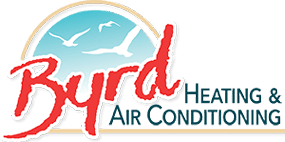 During anybody’s lifetime, they repeatedly have to decide when buying something. Whether to go for a cheaper model or the more expensive one. Sometimes the decision is easy, if you don’t much care about the long-term use of whatever you’re buying. However, with residential heating or cooling systems, quality over the long haul is the way to go. Similarly, when you compare the so-called “first cost” with the lifetime costs of a new air conditioner, the latter is almost always the most important consideration. Let’s compare the two:
During anybody’s lifetime, they repeatedly have to decide when buying something. Whether to go for a cheaper model or the more expensive one. Sometimes the decision is easy, if you don’t much care about the long-term use of whatever you’re buying. However, with residential heating or cooling systems, quality over the long haul is the way to go. Similarly, when you compare the so-called “first cost” with the lifetime costs of a new air conditioner, the latter is almost always the most important consideration. Let’s compare the two:
First Cost
This is a combination of the purchase price of the A/C and its installation. Depending on the brand of cooling system you choose, its energy-efficiency level and add-on features, the cost can vary widely. The most common type of A/C is the split system, with an air-handling unit inside with the evaporator coil, and a compressor/condenser unit outside, probably next to the house.
Installation costs also can vary, depending on who’s performing the job and whether additional work has to be done on ductwork, plumbing or wiring. You’re better off with a professional HVAC contractor who knows the importance of proper A/C sizing. If he knows his stuff, he should use the Air Conditioning Contractors of America’s Manual J load calculation software to size your system. It takes into account your home’s size and layout, as well as a variety of other factors, in determining how much cooling your home requires. Then he sizes the A/C system accordingly.
A quick, rule-of-thumb installation, on the other hand, may get you an oversized or undersized system, and neither will ever give you the energy efficiency and cooling output you bargained for.
Lifetime Costs of a New Air Conditioner
The lifetime costs of a new A/C also can vary widely. These include the monthly energy/utility costs of your new system, as well as maintenance and repair costs over its lifetime.
Energy efficiency is probably the most important variable in a new air conditioning system, and its first cost will be directly related to that efficiency level. The most important metric for cooling efficiency is Seasonal Energy Efficiency Ratio (SEER). While a higher SEER level raises the cost of a new A/C, it also will result in lower monthly bills. In just a few years, the savings you’ll get with a SEER 16-18 air conditioner (as opposed to 13 or 14) will more than make up for whatever extra money you spent on that system.
Quality is also important. A quality, durable system should last a lot longer than a cheaply made off-brand central A/C. A well-made, name-brand central air conditioner should continue running at its original efficiency level for 15 years or more, as long as it receives regular professional maintenance, along with do-it-yourself maintenance steps such as inspecting and changing the filter when needed. A quality system also should result in fewer repairs over the years.
Energy-saving features are another key factor in the lifetime costs of a new air conditioner. A multi-stage compressor, for example, will adjust the amount of cooling output from your central A/C to match cooling needs in your home. Combined with a variable-speed blower motor in the furnace blower or air handler, your A/C will only operate at full blast when necessary. Most of the time, it will run at a slower, more continuous operating level, for better energy efficiency, more balanced cooling, less stress on parts, and superior humidity control and air filtration.
AC Systems Savannah, GA
Along with the A/C system itself, it’s also important to remember that energy-efficiency steps you take around the house – such as air sealing and upgrading insulation – can allow you to purchase a smaller air conditioner than you might have needed otherwise. This way, you can pay for less capacity but more quality.
When you stack up the first cost versus the lifetime costs of a new air conditioner, it’s no-brainer. Minimizing lifetime costs is a more important goal than spending less at the outset; pay more at the start, and you’ll save money for the life of your new A/C.
For more help assessing the lifetime costs of a new air conditioner installation and other HVAC issues you’re concerned about, please call us at 912-373-8447. Byrd Heating and Air Conditioning serves Savannah and other nearby communities.
Image Provided by Shutterstock.com

